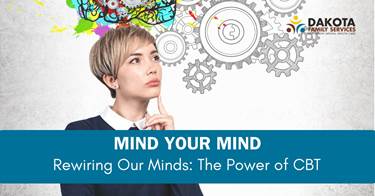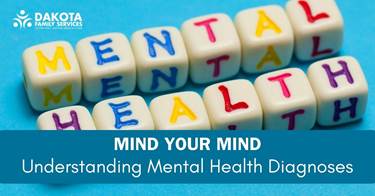Podcast Topics
Mental health
Navigating Psychological Testing: Should Everyone Get Tested?
In this insightful episode of "Is It Just Me?", the hosts delve into the intricate world of psychological testing alongside special guest Dr. Megan Spencer. From debunking myths to shedding light on its importance, they discuss the nuances of assessments, reports, and the impact on mental health services. Join them as they navigate through the complexities of psychological testing in a candid and informative conversation.
Understanding Borderline Personality Disorder
Join hosts Lucas and Christy as they dive deep into the world of borderline personality disorder (BPD) in this enlightening podcast episode. From discussing common misconceptions to providing insights on managing symptoms, this episode aims to educate, reduce stigma, and dispel myths surrounding personality disorders. Through personal anecdotes and expert advice, listeners will gain a better understanding of BPD and learn valuable strategies for improving mental health.
In this episode of "Is It Just Me?," Christy and Lucas delve into the complex and challenging world of parenting, talking through different parenting types, styles, and approaches. Offering insights and discussions that aim to reduce the stigma around mental health, they provide invaluable guidance for parents, caregivers, and anyone involved in the journey of raising children. From the difficulties of disruption and life routines to the necessity of a united parental front, no topic is left unexplored in this candid and informative episode.
In this episode of "Is it Just Me?" join host Christy and Lucas as they talk about fear! Everyone experiences fear at some point in their lives. Sometimes this fear can become problematic, limiting your ability to live a full life. Christy and Lucas cover some of the science behind fear, define "phobia," talk about how they treat dysfunctional fear in therapy, and provide tips for what you can do at home to help yourself or your child with their fear.
In this episode of "Is It Just Me?" Lucas and Christy explore the complex topic of narcissism. They'll delve deep into the traits and behaviors of narcissistic individuals, as well as the difficulty of having a relationship with them and the impact they have on society. Through expert advice, relatable stories, and therapeutic insights, listeners will gain a better understanding of narcissism and learn tools to navigate interactions with narcissists more effectively.
In this special additional episode of “Is It Just Me” join therapist Lucas Mitzel as he gives listeners a transformative journey within their own body and mind. In this episode, Lucas guides listeners through a soothing body scan to promote calm, mindfulness, and inner peace. This episode offers a unique mixdown of gentle narration, and relaxation techniques, leaving you feeling refreshed, rejuvenated, and more connected to yourself.
Navigating Life Through Mindfulness
In this episode of “Is It Just Me?”, Lucas and Christy delve into the world of mindfulness and relaxation techniques. From body scans to mindfulness exercises, they provide a soothing experience to help you unwind and destress. Discover practical tips and advice on incorporating mindfulness into your daily routine and learn how to prioritize mental well-being in today's fast-paced world.
In this month’s episode of the "Is It Just Me?" podcast, Lucas Mitzel and Christy Wilkie, Dakota Family Services, dive into the complexities of trauma and its therapy. The episode sheds light on Trauma-Focused Cognitive Behavioral Therapy (TF-CBT) and the importance of creating a trauma narrative as a cornerstone of healing. The thoughtful discussions aim to educate listeners on the intricacies of trauma, the innovative methods used in therapy, and the role of caregivers in the recovery process. Through expert insights and compassionate storytelling, Lucas and Christy provide practical advice and real-world examples for individuals who have experienced trauma.
Therapy Unveiled: What to Know Before You Go
In this episode of "Is It Just Me," Lucas and Christy talk about what it's like to begin therapy. Feeling apprehensive about starting therapy is normal, but surmountable. Together, Lucas and Christy unravel common myths about therapy and emphasize the role of therapy in disrupting negative life patterns and routines that are no longer serving you.
Boosting Self-Esteem: From Marathons to Daily Triumphs
In this episode of "Is It Just Me?", Christy and Lucas discuss how common it is for people to see themselves differently from others. Using their own personal triumphs and challenges as examples, they outline the things that shape our self-esteem. Additionally, they share simple daily practices to help listeners recognize and celebrate their own personal victories. This episode is filled with tips and engaging stories aimed at encouraging listeners to undertake challenges that foster self-growth and personal confidence.
Internet Safety and Mental Health
In this episode of "Is It Just Me?", join our hosts Christy and Lucas as they delve into the complex relationship between the internet and mental health. With the digital age bringing information and social connections to our fingertips, it also presents unique challenges and opportunities for our safety and psychological well-being.
In this episode of "Is It Just Me?" Lucas and Christy discuss ADHD, shedding light on its prevalence and impact on daily life. Learn practical strategies for managing symptoms and understand why your friend or loved one with ADHD does the things they do.
Join Lucas and Christy as they explore the power of spending time outdoors on mental and emotional well-being. Discover practical tips, personal anecdotes, and expert insights on the benefits of getting outside and reconnecting with nature.
In this episode, Christy and Lucas explore anxiety. Join them as they discuss the signs and symptoms of an anxiety disorder, what you can do to decrease your anxiety, and how to best help loved ones struggling with anxiety.
In this episode, Christy and Lucas explore why relationships can be so hard. Join them as they discuss the characteristics of both healthy and toxic relationships, talk about the difference between normal conflict and abuse, and help you discover your love languages so you and your partner can best express your love to each other.
Seasonal Affective Disorder (Community Chat Series)
Feeling like you’ve got the winter blues? If you’re noticing symptoms of depression with the change of seasons, it may be a sign that you’re suffering from Seasonal Affective Disorder, or SAD. In this special Community Chat episode of Mind Your Mind, therapists Christy Wilkie and Lucas Mitzel discuss the common symptoms of Seasonal Affective Disorder, how it can affect other mental health disorders, and some useful tips, tricks, and resources for managing symptoms of SAD.
Psychological Assessments: What to Expect
Do you think you might be suffering from an undiagnosed mental disorder? If so, a psychological assessment might be able to help. In this episode of Mind Your Mind, psychologist Dr. Hannah Baczynski and host Tim Unsinn talk about what to expect from a psychological assessment, including what an assessment might include, what information you might receive from the psychologist, and what you should communicate with your psychologist before and after receiving an assessment.
Are you looking for some help on your mental health journey? In this episode of Mind Your Mind, host Tim Unsinn and therapist Jessie Mertz talk about how to find a therapist, including what you should know when searching and what questions to ask when you meet a therapist for the first time. They also touch on what the letters after a therapist’s name mean, and how they apply to the type of services or treatment you might be looking for.
While OCD is sometimes perceived as simply a desire to keep things neat and organized, it can actually have much more severe symptoms for those who experience it. In this episode of Mind Your Mind, host Tim Unsinn meets with psychologist Dr. Megan Spencer to talk about who Obsessive Compulsive Disorder affects, what its signs and symptoms are, and how to seek help if you or a loved one has been diagnosed with OCD.
Bipolar Disorder: Understanding the Highs and Lows
Although the term ‘bipolar’ is sometimes used as slang to describe someone who is moody or indecisive, true bipolar disorder is a complex and sometimes severe mental health disorder that affects the way a person thinks, feels, and behaves. In this episode of Mind Your Mind, host Tim Unsinn discusses bipolar disorder with nurse practitioner Amanda Daggett, touching on what the disorder is, what its symptoms look like, and how it can be treated.
How to Have a Conversation About Mental Health
Although the stigma surrounding mental health is gradually disappearing, it can still be tricky knowing how to talk about it. In this episode of Mind Your Mind, host Tim Unsinn and psychologist Megan Spencer explore how to have a conversation with someone about their mental health, including signs that you should talk to them, how to start the conversation, and some possible reactions to expect from the other person.
Schizophrenia is a chronic, complex mental health disorder that affects around 1% of people in the United States. In this episode of Mind Your Mind, host Tim Unsinn and psychiatrist Dr. Wayne Martinsen discuss the symptoms and implications of schizophrenia, touching on its many effects on individual and family life. Learn about how schizophrenia is treated, how it affects physical health, when it tends to develop, and how it is perceived between cultures.
How to Fit In While Staying True to Yourself
Humans are hardwired for social connection, but it can be difficult knowing where to fit in as unique individuals. In this episode of Mind Your Mind, host Tim Unsinn and therapist Christy Wilkie talk about the importance of using your strengths, interests, and relationships to figure out where you belong. They also touch on signs that you might not be staying true to yourself, as well as how to handle feelings of being left out.
Shining Light in the Darkness with DBT (Community Chat Series)
Does it seem like your child is “stuck” in therapy, or engaging in dangerous behaviors like self-harm and suicidality? In this special Community Chat episode of Mind Your Mind, Psychologist Hannah Baczynski and therapist April Morris discuss Dialectical Behavior Therapy and its effectiveness in treating patients who have found traditional therapy unsuccessful. Learn about the 4 core skills of DBT and what makes DBT unique from other forms of therapeutic treatment.
Anxiety is one of the most common mental health problems people face. However, there are many ways to manage and understand it. On this episode of Mind Your Mind, host Tim Unsinn and therapist Lucas Mitzel discuss what causes anxiety and how it can affect people’s day-to-day lives, as well as the difference between anxiety and fear and how to combat chronic anxiety with grounding techniques.
Many people find themselves dealing with high levels of stress and anxiety in their daily lives. However, there are plenty of simple strategies to help regulate these emotions. In this episode of Mind Your Mind, host Tim Unsinn talks with therapist Sandy Richter about various coping exercises to help you regulate and calm yourself, including breathing and movement exercises for both children and adults.
Understanding & Managing Anxiety (Community Chat series)
Are your worries and fears about the future getting in the way of daily life? If so, you may be one of the many people who suffer from anxiety. In this special Community Chat episode of Mind Your Mind, Christy Wilkie and Lucas Mitzel talk about the many types of anxiety and what they can look like in both children and adults. They also touch on ways to combat anxiety attacks, including using grounding techniques, mindfulness, muscle relaxation, and more.
Rewiring Our Minds: The Power of CBT
In this episode of Mind Your Mind, host Tim Unsinn and Dakota Family Services therapist Christy Wilkie talk about Cognitive Behavioral Therapy and its effectiveness in battling unhelpful thoughts and beliefs. Utilizing cognitive restructuring, CBT helps change inaccurate and damaging self-perceptions and perceptions of others, leading to healthier day-to-day thought patterns. Christy also touches on multiple CBT exercises to try at home, as well as some of her own tactics for promoting helpful thoughts.
Getting the Most out of Therapy
Unsure of whether your therapy is working for you? In this episode of “Mind Your Mind,” our host Tim Unsinn talks with Dakota Family Services therapist Lucas Mitzel about how to make your therapy sessions more productive. Making progress in therapy can often come down to simply having an open mind and a plan for discussion. Although each session can evoke a wide range of emotions, you should always leave feeling that some sort of movement has happened.
You can probably think of a dozen things that make you feel sad. Sadness is a normal human emotion that helps us process the events in our lives. But what is "normal" sadness? When does sadness move from "normal" to something you may need help processing? In this episode of "Mind Your Mind," Falan Johnson, a therapist at Dakota Family Services, will answer these questions and more. Learn the importance of allowing yourself to feel sad so you can move past it, and, when it might be time to seek professional help.
Building Resilience in Ten Steps
Resilience is not a personality trait or characteristic. Resilience isn't ignoring or emotional numbing or pretending that a problem doesn't exist. And being resilient doesn’t mean we won’t face adversity. Rather, resilience is our ability to bounce back from adversity. In this episode of Mind Your Mind, Dr. Megan Spencer, psychologist at Dakota Family Services, shares ten ways to build resilience so you are ready when adversity strikes.
When Fear Overwhelms: Panic Attacks
In this episode of Mind Your Mind, Host Tim Unsinn talks to Therapist Falan Johnson about panic attacks. What do they feel like? What causes them? How can you prevent or manage them? Listen now to learn more and discover techniques that might work for you or your loved one.
Spoon Theory: A Metaphor for Anxiety and Depression
Anxiety and depression are invisible illnesses—meaning they don't have outward symptoms visible to others. Because they are invisible, they are often hard for people to explain. In this episode of "Mind Your Mind," Host Tim Unsinn visits with April Morris, LCSW, Therapist, Dakota Family Services. April references the spoon theory of chronic illness created by Christine Miserandino, an award-winning writer, blogger, speaker, and lupus patient advocate. Listen now to learn more about spoons as a metaphor for energy and how you can use them to understand and explain anxiety and depression.
Beyond the Baby Blues: Understanding Postpartum Depression
Pregnancy and the birth of a child can be a joyous and exciting time, but some women struggle with their mental health as they transition to motherhood. Depression, anxiety, and other pregnancy-related mental health conditions may surface during or after pregnancy. In this episode of "Mind Your Mind," Tim Unsinn speaks with Clinical Psychologist Dr. Megan Spencer. Dr. Spencer helps us understand the common symptoms and causes of postpartum depression, as well as what to do if you think you may be experiencing it.
In today's episode of Mind Your Mind, your host Tim Unsinn talks with Christy Wilkie about the Feelings Wheel*. Christy, a therapist at Dakota Family Services, says humans experience 34,000 different feelings! She demonstrates how to use the Feelings Wheel to help you identify your emotions so you can control the behaviors associated with them. *Adapted by classtools.net from the Emotional Wheel. The Emotional Wheel was developed by American psychologist, Dr. Robert Plutchik.
Understanding Mental Health Diagnoses
Diagnosing children with a mental health-related condition can be controversial. Many worry this gives children a label that is set in stone and will follow them around their entire lives. In this episode of Mind Your Mind, Dr. Wayne Martinsen talks about the role of diagnosis in getting children the help they need. Martinsen encourages us to think about mental health diagnoses the same as we do any health diagnosis. If you go the doctor and they diagnose you with strep throat, that doesn’t mean you’ll have strep throat forever, or that you are a strep throat victim. It just means that you have a collection of symptoms that point to strep throat, and the doctor will use that diagnose to provide the appropriate treatment.























